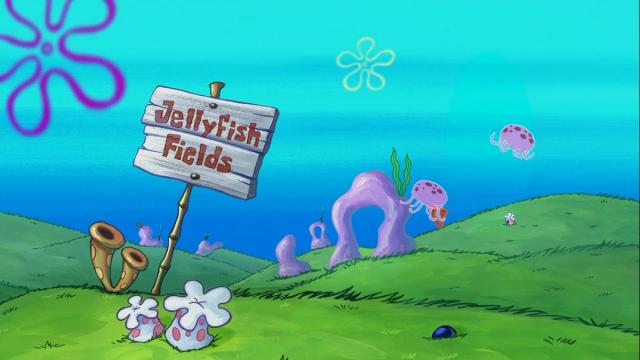Lax fishery regulation means your humble fish and chips might be made up of critically endangered species but Queensland researchers propose a radical alternative to help save our fish — jellyfish and chips.
Researchers at the University of Queensland (UQ) have analysed global data, finding 92 endangered and 11 critically endangered species of seafood had been caught up in the fishing industry and sold to unwitting Australians.
It’s in part due to poor labelling regulation meaning the fish and chips you’re buying at the local shop, typically labelled as ‘flake’ or ‘fish’, might actually be a species dwindling in population.
Leslie Roberson, a PhD candidate at UQ’s Centre for Biodiversity and Conversation Science, was involved in the analysis and explained you could be eating shark or ray.
“Because of the lax seafood labelling laws, there could be all sorts of shark and ray species in ‘flake’,” Roberson said in an email to Gizmodo Australia.
“The main species is the gummy shark, which is not threatened, but that fishery also catches a lot of school shark, [which are] critically endangered at the same time, and it is legal to sell that catch, which creates an incentive to ‘accidentally’ catch more of it.”
Adding to that devastation, Roberson added it was happening in places you would really hope it wasn’t, like the Great Barrier Reef.
“There’s also a big and poorly managed fishery that targets all sorts of shark species off the Great Barrier Reef — they catch several threatened species, including the critically endangered scalloped hammerhead shark,” Roberson said.
“These species can also end up in flake and chips.”
There have been attempts by the responsible federal department, Department of Agriculture, Water, and the Environment, to resolve the labelling issues but it’s complicated by separate rules within each state’s own fisheries.
“In 2008, the federal and state governments introduced mandatory ‘country of origin’ labelling for packaged seafood,” Roberson said, adding it was still not enough.
“While this is a good step forward, it is still possible to buy fish that was farmed or caught overseas, but processed in Australia, labelled as ‘Made in Australia’.”
Eating jellyfish and chips might be a solution
Rather than just cancelling seafood out altogether, Roberson explained there were simple and sustainable alternatives.
Battering up a plate of jellyfish and chips is one of those ideas.
“Jellyfish is my somewhat radical example of a more sustainable alternative,” Roberson said.
“I’ve eaten it, I honestly think it has about as much flavor as shark meat — it’s just bland and chewy, very inoffensive so you add a lot of spices to it.”
The thought of swapping out your battered fish order for a ‘fillet’ of jellyfish might not have many Australians chomping at the bit but it’s just one way of trying to tackle the conservation issue.
“I think it will take a long time for Australians to normalise eating jellyfish, but there are a lot of more familiar types of seafood that are better choices than threatened species,” Roberson said.
With jellyfish not likely becoming a popular menu item in the coming years, however, there are more pratical steps seafood lovers can take in the meantime.
Roberson said it came down to three primary pieces of information: the specific species of fish, so ‘skipjack tuna’ rather than just ‘tuna’, in addition to where and how it was caught.
Cross-referencing that information with GoodFish’s Sustainable Seafood Guide will better help you understand if you’re eating one of the word’s last remaining Eastern King Prawns.
“The problem is that the seafood supply chain is really messy and not transparent — that’s a global problem, not just in Australia — so we need to use new advances in digital technology and better monitoring methods to make sure seafood distributors and consumers can find out the answers to those three questions,” Roberson said.
“This is a problem that will require regulation from the top to fix, but consumer awareness and demand can help push those changes to happen.”
With regulation struggling to catch up with the issue for now, it might be time to consider the prospect of jellyfish flambé in the name of conservation.
[related_content first=”1203973″]
